#William Charters
Text




#William Charters#muscles#pecs#Mine#only just discovered him last night and now i am obsessed#don't care what he's saying just that he's goddamn huge
2K notes
·
View notes
Text






William Charters


22 notes
·
View notes
Photo

Artist: William Hawkins, :: Source: Naive Art Extraordinaire
* * * *
"Clouds come floating into my life,
no longer to carry rain or usher storm,
but to add color to my sunset sky."
~Rabindranath Tagore
[Charter for Compassion]
215 notes
·
View notes
Text
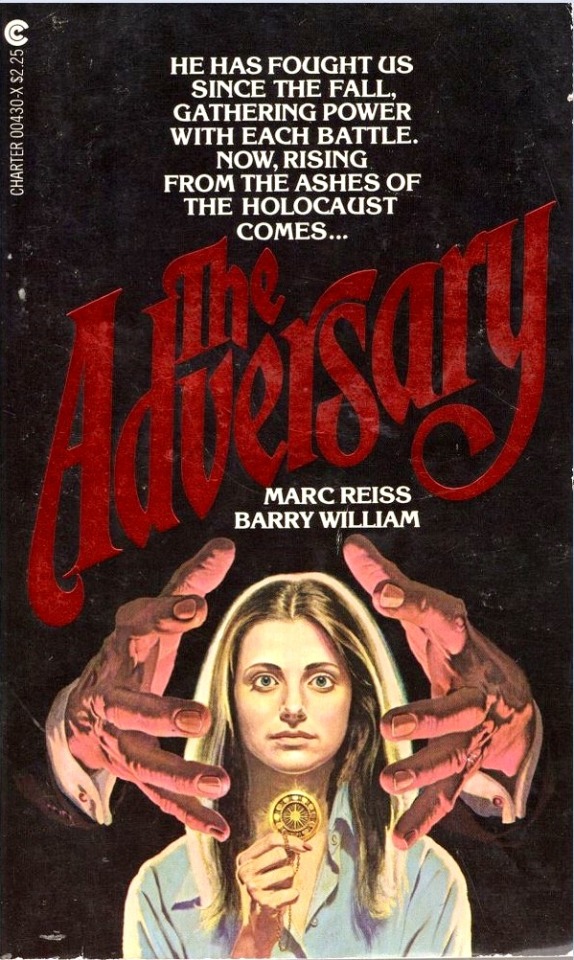
Marc Reiss, Barry William - The Adversary - Charter - 1979
#witches#adversaries#occult#vintage#novel#the adversary#charter books#marc reiss#barry william#battles#ashes#holocaust#1979
15 notes
·
View notes
Text

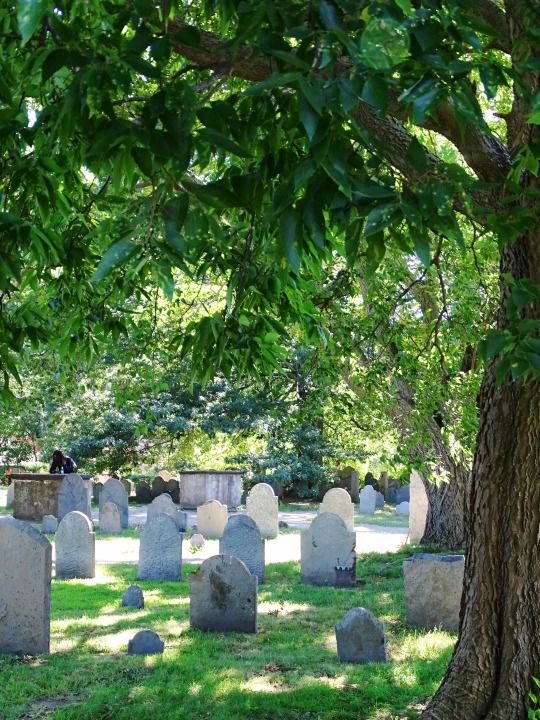
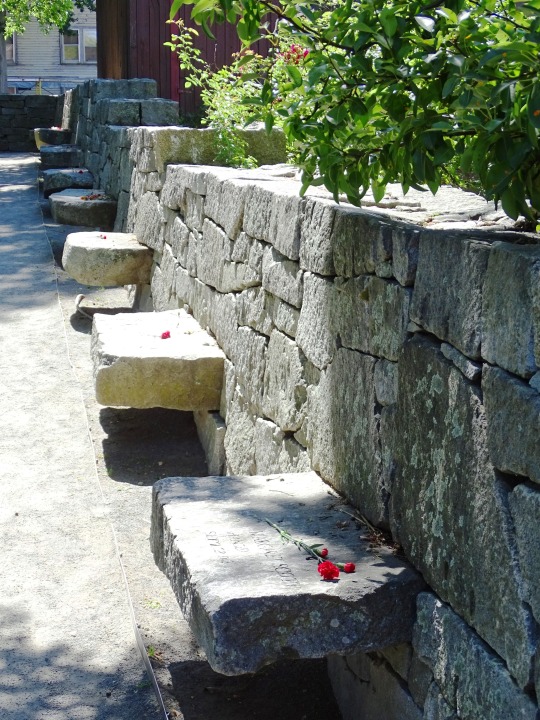
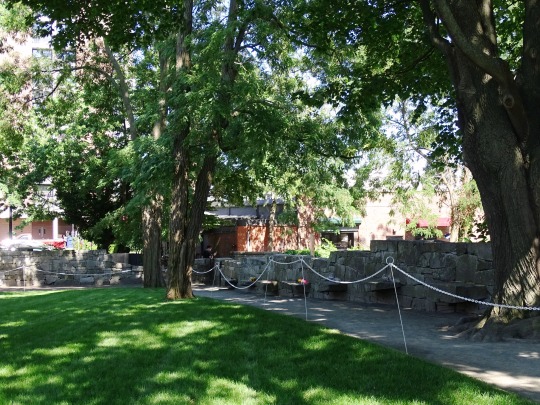
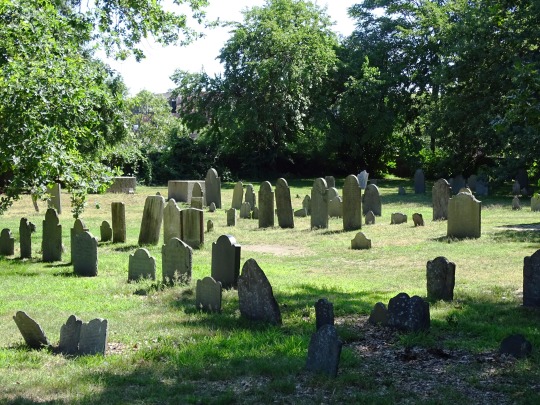
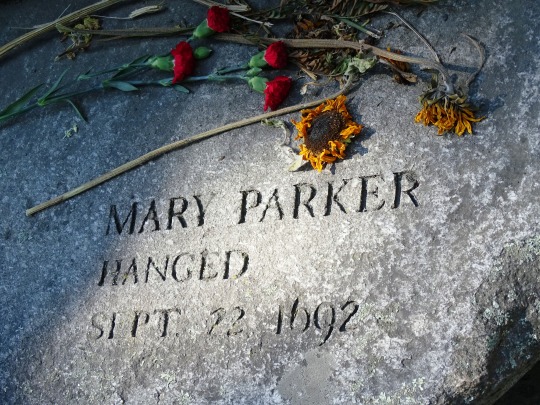
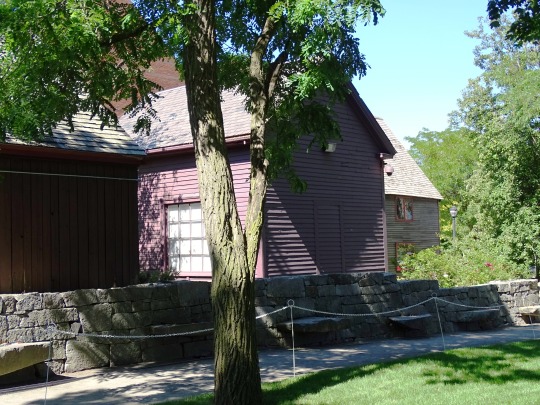
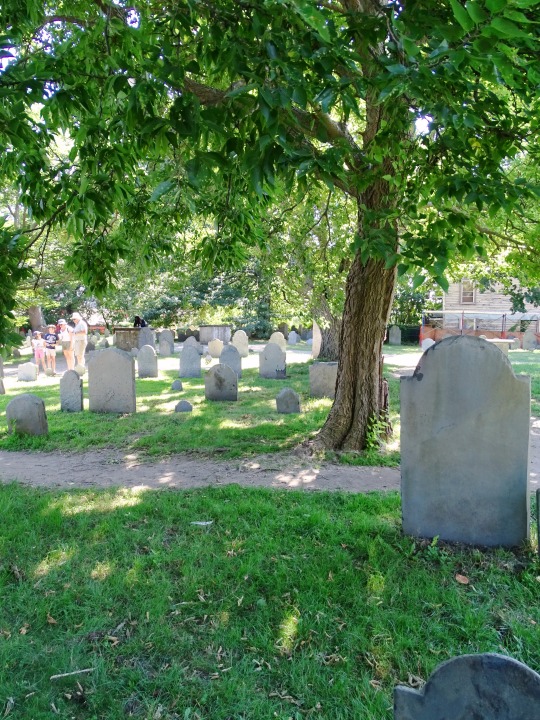
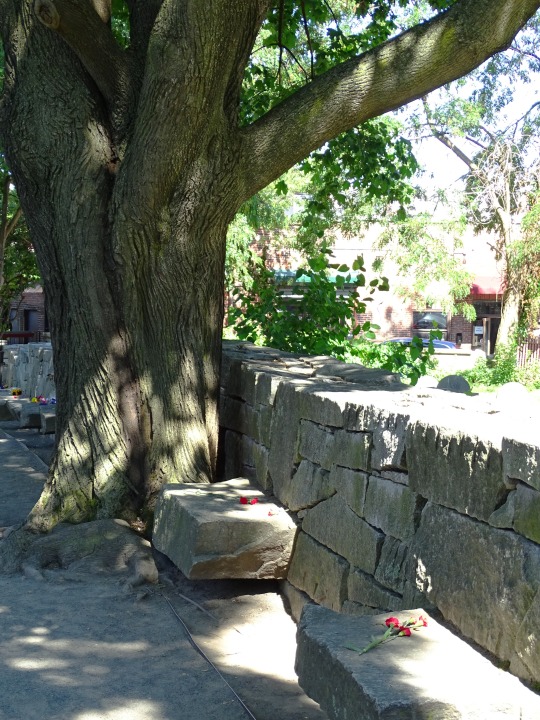
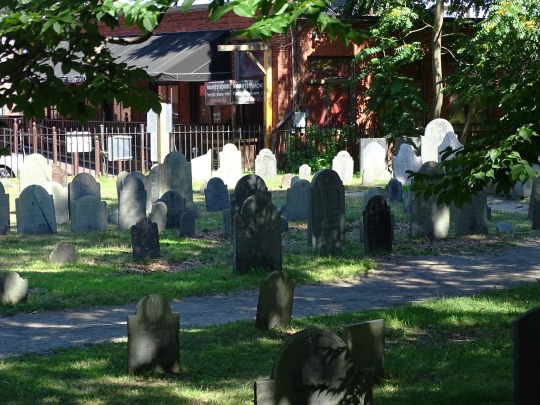
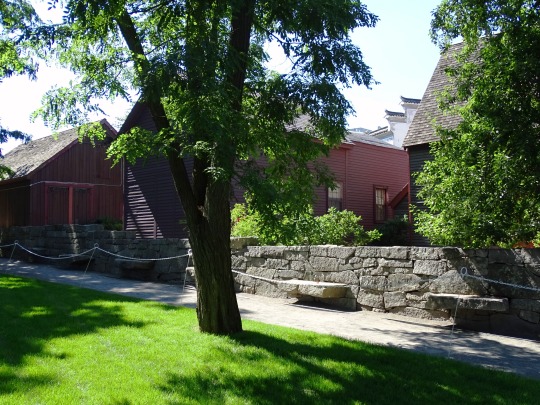
The Salem witch trials were ended by a letter from Massachusetts Governor Sir William Phips on October 12, 1692.
#Salem witch trials#ended#Governor Sir William Phips#12 October 1692#USA#The Salem Witch Trials Memorial by Maggie Smith and James Cutler#Salem#Massachusetts#New England#anniversary#US history#vacation#public art#free admission#Old Burying Point Cemetery#tombstone#landmark#original photography#summer 2018#Charter Street Burying Point
19 notes
·
View notes
Text

we are so back
#william snelgrave looking ass.#I MISSED YOU LOUIS#ds liveblogging.#1225.#i like that the general theme of this arc is that the collinses in the 17th century were doing even worse war crimes.#i don't trust a collins as far as i can throw em but a collins with a colonial charter? oh boy.
2 notes
·
View notes
Photo


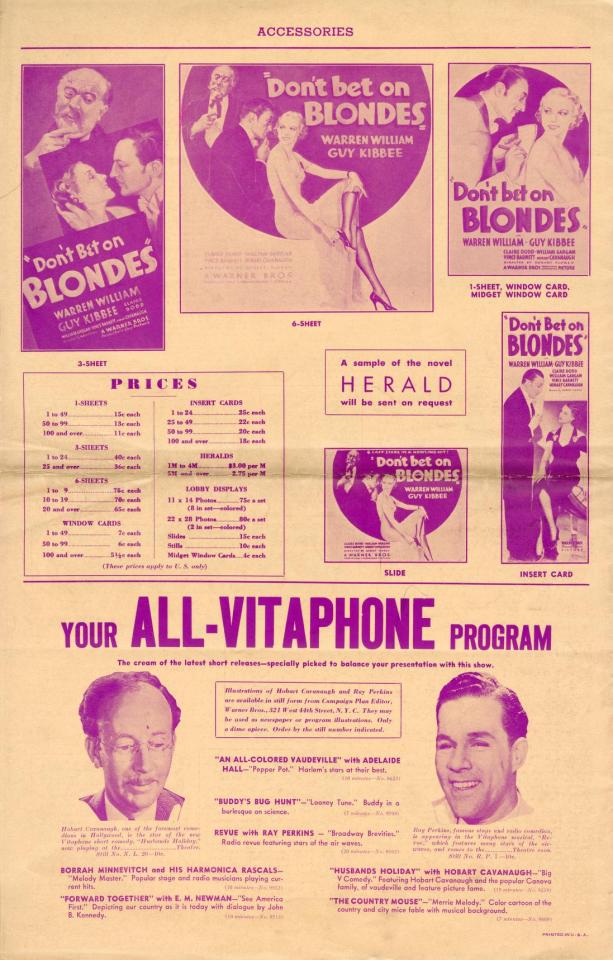

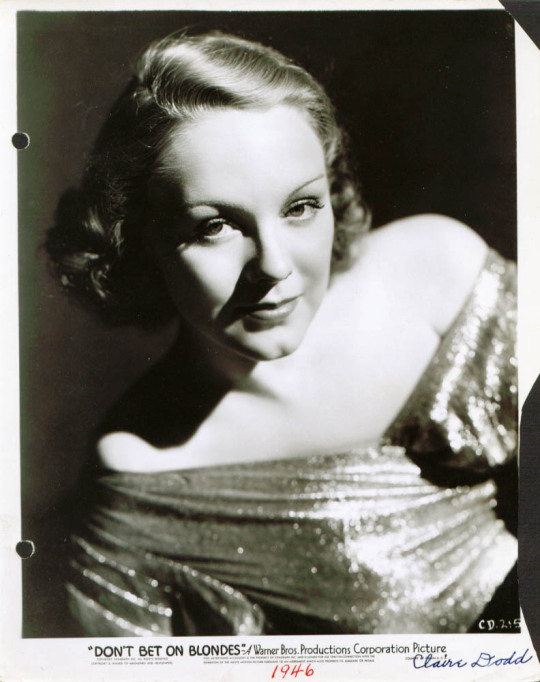
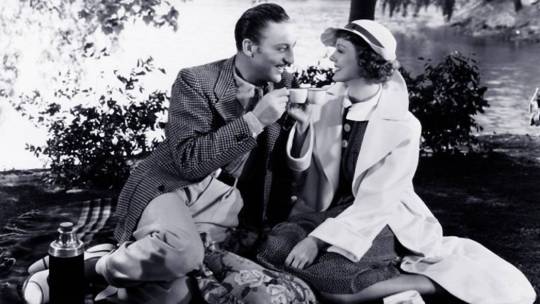

Don’t Bet on Blondes (1935) Robert Florey
January 28th 2023
#don't bet on blondes#1935#robert florey#warren william#claire dodd#guy kibbee#william gargan#vince barnett#spencer charters#clay clement#hobart cavanaugh#mary treen#errol flynn#not on your life
9 notes
·
View notes
Text
This one history book (basically apush review book...) is being such a bitch to Roger Williams for literally no reason.
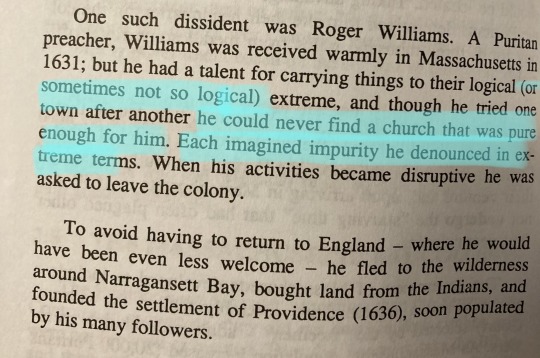
Ma'am I believe the "imaged impurities" you're referring to are called religious persecution and the lack of seperation of church and state, along with, oh idk, murdering natives, and I can assure you those were all very real and also things that deserve to be "denounced in extreme terms".
Anyway fuck this and also fuck the fact that no one recognises Williams' contributions? I don't think my US history class even mentioned him. Anyway if you don't know who he is, he was writing in demand of seperation of church and state and consent of the governed in damn near those exact words while John Locke was 12, and in 1636 he established in Providence a democratic society based on the idea that the power comes from people, not from God, with complete religious toleration for *any* religion or lack thereof, where church and state were strictly seperate, and Williams firmly believed throughout his entire life that the Native Americans were in every way equal to the Europeans.
#full Powre and Authority to Governe & rule themselves ... by such a form of Civil Government as by voluntary consent of all or the greater#-Part of them shall find most suteable.#roger williams#one of the things that got him exiled from massachusetts was saying they should buy the land from the natives rather than steal it#us history#'oh tj invented the phrase seperation of church and state' grrr no he did not#“the hedge or wall of seperation between the Garden of the Church and the Wildernes of the World”#- the charter for Providence
2 notes
·
View notes
Text
William Forster Mitchell (1825 – 1892)

This summer, I created a small exhibit in the Maria Mitchell Vestal Street Observatory to highlight some of the other Mitchell family members. We were celebrating the renovation of the Seminar Room addition at the MMO – completed with a gift from MMA board member and Mitchell family descendant, Richard Wolfe. Mr. Wolfe is a descendant of Maria Mitchell’s younger brother, William Forester. I have mentioned him before but thought I would share some more details of another remarkable member of the Mitchell Family.
Named by his parents, William and Lydia Mitchell, for the famous English Quaker, Forster as he was called was educated like his siblings – in his father’s schools, at home, and in Quaker-led schools on the island. Forster married Charlotte Coffin Dow in 1846. While he left Quaker meeting – as all of his siblings did – he later returned with a reinstatement by the Meeting. Following in the footsteps of his father, Forster became a teacher serving at several schools, including heading a Penn Charter School in Philadelphia and helping a financially floundering school for people of color in Philadelphia. Forster served as Haverford College Superintendent from 1861-1862 and then was made principal at the Roberts Vaux Public School in Philadelphia. An abolitionist and educator, he became a supervisor and teacher in the Freedmen’s Aid Commission, working in the South with formerly enslaved people. His daughter, Annie Maria joined him in his work there for several years.
Founded in 1859 during the Civil War, the Commission was created by several religious denominations that hired teachers and provided housing so that they could establish and run schools in the South to help and support those who had been enslaved. The Commission also assisted formerly enslaved peoples with finding jobs, housing, and basic necessities for life. The work of the Commission’s teachers helped to raise the literacy rate of the formerly enslaved people by an incredible amount – it founded over 500 schools and colleges in the South where the newly freed could gain professional degrees as well. Children, men, and women all attended the schools to learn to read or to improve their limited literacy. Forster Mitchell found himself a part of a Commission that included many Quakers and quite a few Nantucketers, including island teacher Anna Gardner.
As a young man, Forster apprenticed to his uncle, Peleg Mitchell Jr – William Mitchell’s youngest brother – who owned a tinsmithing shop. His apprenticeship proved very useful, as Forster became a founding faculty member at Howard College (now University) where he taught tinsmithing in the Industrial Arts Department – a craft he learned from his Uncle Peleg. In ill health later in his life, Forester returned to Nantucket at the invitation of his younger brother, Henry, who had a home on the Cliff called Sunnycliff. Forster would die on Nantucket, in another house down the street from Henry, in 1892.
JNLF
#Nantucket#Maria Mitchell#Nantucket Maria Mitchell Association. William Forester Mitchell#Forester Mitchell#Annie Maria Mitchell#Charlotte Dow Mitchell#Howard University#tinsmithing#Penn Charter School#Haverford College#Freedmen's Aid Commission#Anna Gardner#William Mitchell#Lydia Coleman Mitchell#Roberts Vaux Public School
0 notes
Text
Now showing on DuranDuranTulsa's Horror Show...Slaughterhouse (1987) on glorious vintage VHS 📼! #movie #movies #horror #slaughterhouse #joebbarton #sherryleigh #donbarrett #WilliamHouck #janehigginson #davefogel #billbrinsfield #jeffgrossi #jasoncollier #courtneylercara #JoelHoffman #vhs #vintage #charterentertainment #80s #durandurantulsa #durandurantulsashorrorshow

#movies#movie#horror#slaughterhouse#slaughterhouse 1987#joe b barton#sherry leigh#William Houck#dave fogel#bill brinsfield#joel hoffman#don barrett#jane higginson#jeff grossi#jason collier#courtney lecara#vintage#vhs#80s#charter entertainment#duran duran tulsa's horror show#duran duran tulsa#Spotify
1 note
·
View note
Text



#William Charters#muscles#pecs#Mine#he's my new obsession right now#i apologize now#he's just so massive and thick
2K notes
·
View notes
Text
This Black History Month, reflect for a moment on the fact that George Washington Carver, famously "the inventor of peanut butter and more than 100 industrial uses for peanuts" wasn't, like, Doc Brown fucking around in his garage because he really liked peanuts but was specifically trying to introduce larger use of a nitrogen fixing legume into crop rotations against cotton monoculture which was destroying yields, livelihoods and the biosphere, and how most agribusiness farming now just destroys that topsoil on purpose and continues to grow a cotton monoculture (or soy or corn or whichever local monoculture is profitable) using petrochemical derived fertilizer, which is one element driving climate change
Daniel Hale Williams performed the first successful heart surgery. He also founded the first nonsegregated hospital in America because he was keenly aware of disparate health outcomes by race which is still a problem today.
WEB Dubois was a part of the delegations for the birth of the UN. His proposal to include in the charter that "the colonial system of government … is undemocratic, socially dangerous and a main cause of wars" was not adapted for the final draft. We might see inaction against colonial violence to this day as part of the failure of others to heed his warnings there.
I feel like so often when we look at Black History Month so much of it is driven by factoids but when taken as history in context its about a direct line from decades and centuries to what is happening right now.
10K notes
·
View notes
Text
A central element of the myth of [Eleanor of Aquitaine] is that of her exceptionalism. Historians and Eleanor biographers have tended to take literally Richard of Devizes’s conventional panegyric of her as ‘an incomparable woman’ [and] a woman out of her time. […] Amazement at Eleanor’s power and independence is born from a presentism that assumes generally that the Middle Ages were a backward age, and specifically that medieval women were all downtrodden and marginalized. Eleanor’s career can, from such a perspective, only be explained by assuming that she was an exception who rose by sheer force of personality above the restrictions placed upon twelfth-century women.
-Michael R. Evans, Inventing Eleanor: The Medieval and Post-Medieval Image of Eleanor of Aquitaine
"...The idea of Eleanor’s exceptionalism rests on an assumption that women of her age were powerless. On the contrary, in Western Europe before the twelfth century there were ‘no really effective barriers to the capacity of women to exercise power; they appear as military leaders, judges, castellans, controllers of property’. […] In an important article published in 1992, Jane Martindale sought to locate Eleanor in context, stripping away much of the conjecture that had grown up around her, and returning to primary sources, including her charters. Martindale also demonstrated how Eleanor was not out of the ordinary for a twelfth-century queen either in the extent of her power or in the criticisms levelled against her.
If we look at Eleanor’s predecessors as Anglo-Norman queens of England, we find many examples of women wielding political power. Matilda of Flanders (wife of William the Conqueror) acted as regent in Normandy during his frequent absences in England following the Conquest, and [the first wife of Henry I, Matilda of Scotland, played some role in governing England during her husband's absences], while during the civil war of Stephen’s reign Matilda of Boulogne led the fight for a time on behalf of her royal husband, who had been captured by the forces of the empress. And if we wish to seek a rebel woman, we need look no further than Juliana, illegitimate daughter of Henry I, who attempted to assassinate him with a crossbow, or Adèle of Champagne, the third wife of Louis VII, who ‘[a]t the moment when Henry II held Eleanor of Aquitaine in jail for her revolt … led a revolt with her brothers against her son, Philip II'.
Eleanor is, therefore, less the exception than the rule – albeit an extreme example of that rule. This can be illustrated by comparing her with a twelfth century woman who has attracted less literary and historical attention. Adela of Blois died in 1137, the year of Eleanor’s marriage to Louis VII. […] The chronicle and charter evidence reveals Adela to have ‘legitimately exercised the powers of comital lordship’ in the domains of Blois-Champagne, both in consort with her husband and alone during his absence on crusade and after his death. […] There was, however, nothing atypical about the nature of Adela’s power. In the words of her biographer Kimberley LoPrete, ‘while the extent of Adela’s powers and the political impact of her actions were exceptional for a woman of her day (and indeed for most men), the sources of her powers and the activities she engaged in were not fundamentally different from those of other women of lordly rank’. These words could equally apply to Eleanor; the extent of her power, as heiress to the richest lordship in France, wife of two kings and mother of two or three more, was remarkable, but the nature of her power was not exceptional. Other noble or royal women governed, arranged marriages and alliances, and were patrons of the church. Eleanor represents one end of a continuum, not an isolated outlier."
#It had to be said!#eleanor of aquitaine#historicwomendaily#angevins#my post#12th century#gender tag#adela of blois#I think Eleanor's prominent role as dowager queen during her sons' reigns may have contributed to her image of exceptionalism#Especially since she ended up overshadowing both her sons' wives (Berengaria of Navarre and Isabella of Angouleme)#But once again if we examine Eleanor in the context of her predecessors and contemporaries there was nothing exceptional about her role#Anglo-Saxon consorts before the Norman Conquest (Eadgifu; Aelfthryth; Emma of Normandy) were very prominent during their sons' reigns#Post-Norman queens were initially never kings' mothers because of the circumstances (Matilda of Flanders; Edith-Matilda; and#Matilda of Boulogne all predeceased their husbands; Adeliza of Louvain never had any royal children)#But Eleanor's mother-in-law Empress Matilda was very powerful and acted as regent of Normandy during Henry I's reign#Which was a particularly important precedent because Matilda's son - like Eleanor's sons after him - was an *adult* when he became King.#and in France Louis VII's mother Adelaide of Maurienne was certainly very powerful and prominent during Eleanor's own queenship#Eleanor's daughter Joan's mother-in-law Margaret of Navarre had also been a very powerful regent of Sicily#(etc etc)#So yeah - in itself I don't think Eleanor's central role during her own sons' reigns is particularly surprising or 'exceptional'#Its impact may have been but her role in itself was more or less the norm
355 notes
·
View notes
Text
in 1681 Simon Belmont granted a land charter to religious leader William Metroid to establish a colony in the new world, one which he named "Metroidvania" ("Metroid's Woods")
563 notes
·
View notes

